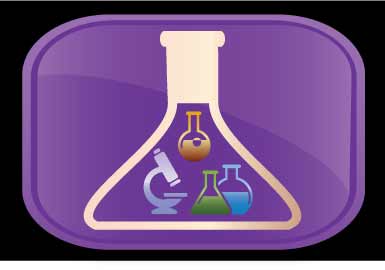Biotech Startups Rely on Different Types of Funding
2012 Directory

Private foundations are also filling this void. For example, a five-year $12.5 million grant from the Bill and Melinda Gates Foundation to Amyris Biotechnologies (Emeryville, California) is funding development of biotechnology methods to produce the anti-malaria drug artemisinin. Artemisinin is currently in short supply and improved production methods are needed.
University Support
Since 2004, UCTTO has deployed $11.5 million to fund 139 projects according to Rick Silva. Eight of these have become startup firms with equity. Another 44 have been licensed or optioned by investors.
UCTTO projects have received $53 million from other sources for technology development and $173 million in venture capital investment. Perhaps the biggest success story is Taligen Therapeutics (Aurora, Colorado). Started in 2004 with UCTTO seed money, there were four rounds of venture capital funding totaling over $70 million. In 2010 the first patient was treated with Taligen's drug for Marchiafava-Micheli syndrome, a rare life-threatening blood disease. In 2011 Alexion Pharmaceuticals acquired Taligen for $111 million.
State and Local Support
MOSIRA is the Missouri Science and Innovation Reinvestment Act. CEO Derek Rapp of startup Divergence, Inc. notes, "The passage of MOSIRA is a big step in promoting formation and growth of startups." It enables the state "to provide a predictable, stable source of funding for building the entrepreneurial infrastructure necessary to support the growth of science and innovation companies in Missouri," says Donn Rubin, executive director of The Coalition for Plant and Life Sciences.
This infrastructure includes incubator space, space for post-incubator companies, multi-tenant space, pilot or full-scale manufacturing space, and research park development for clustering young and mature companies. Rubin notes that MOSIRA enables Missouri to provide the matching funds necessary to attract new jobs and investment to the state.
BioSTL, formed last September in the St. Louis area, is a new regional organization aimed at transforming local innovations into new biotechnology companies. Washington University in St. Louis, BJC HealthCare, and the St. Louis Life Sciences Project have provided $30 million in funding for the next five years.
Venture Capitalists
Venture capitalists are still funding some biotechnology startups. Mirina Corp. recently received funding from Accelerator, a Seattle-based biotechnology investment company. Mirina is developing biotechnology that could be useful in treating cancer. And Google Ventures funded a Lebanon, New Hampshire biotechnology startup called Adimab. It uses technology developed by the Massachusetts Institute of Technology and Dartmouth College to develop genetically engineered versions of specialized human body proteins.
Divergence, Inc. also relied on venture capitalists. It began operations in 1999 in St. Louis to develop products to control and prevent plant root parasites called nematodes. Monsanto acquired the company in early 2011 for $76 million.
Project Announcements
Eli Lilly and Company Plans Lehigh Valley, Pennsylvania, Manufacturing Operations
02/02/2026
Novartis Plans Winter Park, Florida, Radioligand Manufacturing Operations
01/20/2026
Johnson & Johnson Expands Wilson County, North Carolina, Production Operations
01/16/2026
TransMedics Group Plans Somerville, Massachusetts, Headquarters Operations
01/16/2026
Lithium Battery Company Plans Tampa, Florida, Battery Pack Production Operations
01/10/2026
Eurofins Lancaster Laboratories Expands Lancaster County, Pennsylvania, Research Operations
01/03/2026
Most Read
-
Top States for Doing Business in 2024: A Continued Legacy of Excellence
Q3 2024
-
Data Centers in 2025: When Power Became the Gatekeeper
Q4 2025
-
Speed Built In—The Real Differentiator for 2026 Site Selection Projects
Q1 2026
-
Preparing for the Next USMCA Shake-Up
Q4 2025
-
The New Industrial Revolution in Biotech
Q4 2025
-
Strategic Industries at the Crossroads: Defense, Aerospace, and Maritime Enter 2026
Q1 2026
-
The Skilled Trades Are Ready for a Digital Future
Q4 2025



